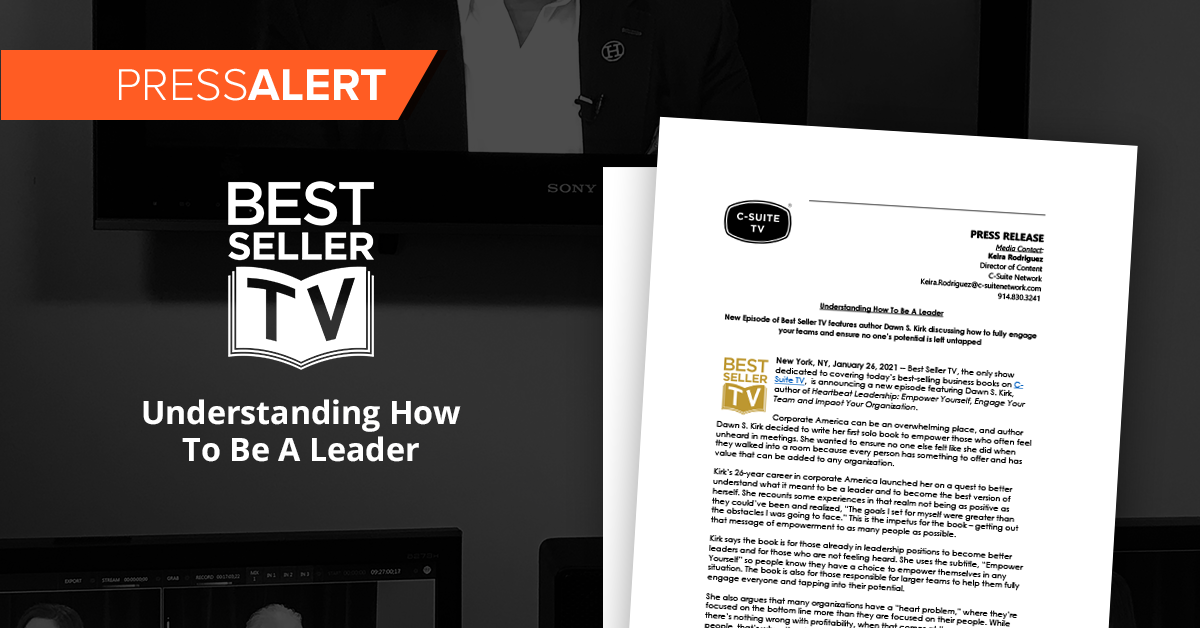
Decipher the Language of Leadership
Decipher the Language of Leadership https://csuiteold.c-suitenetwork.com/wp-content/uploads/2014/06/speaking.jpg 477 358 C-Suite Network https://csuiteold.c-suitenetwork.com/wp-content/uploads/2014/06/speaking.jpgby Judith Glaser
Children raised by parents who positively shape a child’s environment with appreciative and value-based conversations become more optimistic about life and more self-confident. Children who grow up in punitive and judgmental environments tend to be less positive about themselves and more judgmental about others. Those who grow up in families where they are loved, where they learn to discover their strengths and are challenged in positive ways tend to be very healthy of mind, body and spirit and lead healthier lives.
What does this have to do with business leadership? Many illnesses associated with toxic workplaces can be reduced by focusing on the “feel” of the conversational environment that we create for our employees. This suggests that mentally healthy people will have a strengthened immune system, affording them increased protection against disease.
What Opens and What Closes the Brain?
After three decades of research with organizations of all sizes, our Creating WE Institute discovered that we have two types of reactions in conversations: one causes us pleasure and opens our brain, and one causes us pain and closes our brain. Appreciation is pleasure and opens the brain; negative judgment is pain and closes the brain. How can you create the conversational space that affords deeper understanding and engagement, rather than fear and avoidance?
Be mindful of your conversations and their emotional content — either pain or pleasure. Are you sending the message “You can trust me to have your best interest at heart” or “I want to persuade you to think about things my way”?
When you’re aware of these meta-messages, you create a safe culture for open, candid and caring conversations. This allows all parties to interact at the highest level, sharing perspectives, feelings and aspirations, while elevating insights and wisdom.
Natural Rewards
Our brains are designed to be social. Our need for belonging is more powerful than our need for safety. Rejection, on the other hand, brings on the same pain in the brain centers and body as a car crash. But, when we are shown love, respect and honor, it triggers the same centers in the brain as when we eat chocolate. Learning this will change how you lead.
From birth, we learn to avoid physical pain and move toward physical pleasure. Over time, we are able to protect ourselves from ego pain by building habits and patterns of behavior that keep us safe from feeling belittled or embarrassed. At work, this may translate into avoiding a person who competes with you when you speak up. This may also translate to avoiding a boss who sends you silent signals of disappointment.
Pain can also come from what you anticipate — not from what is real. If you imagine that an argument will erupt when you express annoyance to colleagues, the mere thought of having that conversation will produce the social pain of being rejected. The feared implications of pain become so real for us that we seek avoidance, since confronting a person with a difficult conversation may lead to rejection or embarrassment. Our emotions are tied directly to feelings of pain and pleasure — in fact, they are the source of pain and pleasure.
Conversational Intelligence + The Neuroscience of Conversations
For the past 20 years, discoveries at neuroscience research centers have revealed new and healthy ways to handle negative emotions. Since conventional wisdom suggests it’s better to not to discuss these emotions, we turn to alternative strategies like suppressing negative emotions, controlling them, managing them or sharing inappropriately (gossip/triangulation) just to get them out. Anger Management programs and Emotional Intelligence exercises abound to take control of those negative, unsocial emotions.
However, new insights and wisdom from the world of Conversational Intelligence takes us down another path. Rather than suppressing emotions (which damages internal healthy functioning), we need to express them in healthy ways. Learning how to label emotions constructively has a big impact — both for the speaker and the listener. Careful labeling of emotions enables us to regulate them. If the emotion is “rage” or “frustration,” labeling it causes the rage and frustration to dissipate. Constructive Labeling enables speaker and listener to clarify the emotional distress. The speaker offers a more logical frame of reference, which provides healthy regulation.
Labeling emotions and expressing our discomfort enables us to quell the fear and pain centers of the brain (Amygdala) and activate our neural reasoning and forward-thinking (prefrontal cortex), where our strategic and social skills reside. Our pleasure centers are more closely linked to the pre-frontal cortex, so we feel better when we come up with new and better strategies for the future. Language can trigger states of being as powerful as drugs. That is why we are seeing a movement toward Appreciative Inquiry and Positive Psychology. This trust toward communicating in positive and appreciative ways — rather than judgmental — is being constantly validated in psychiatric literature.
To put it simply, we feel happy when someone appreciates us and sad when they think little of us. As we communicate, we read the content and emotions being sent. Conversations are more than the information we share or words we speak. They are a way to package our feelings about ourselves, our world, and others. As leaders, we communicate sad or happy with almost every conversation. As we understand the power of language in regulating how people feel every day, and the role it plays in evolving the brain’s capacity to expand perspectives and create a “feel good” experience, we can shape the workplace in profound ways.
 Judith E. Glaser is the CEO of Benchmark Communications, Inc. and the Chairman of The Creating WE Institute. She is the author of the best selling book, “Conversational Intelligence” (Bibliomotion, 2013), an Organizational Anthropologist and a consultant to Fortune 500 companies.Visit her at creatingwe.com; conversationalintelligence.com or contact her at jeglaser@creatingwe.com. Follow Judith on Twitter @CreatingWE.
Judith E. Glaser is the CEO of Benchmark Communications, Inc. and the Chairman of The Creating WE Institute. She is the author of the best selling book, “Conversational Intelligence” (Bibliomotion, 2013), an Organizational Anthropologist and a consultant to Fortune 500 companies.Visit her at creatingwe.com; conversationalintelligence.com or contact her at jeglaser@creatingwe.com. Follow Judith on Twitter @CreatingWE.





